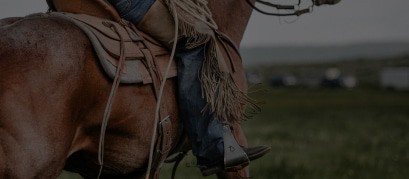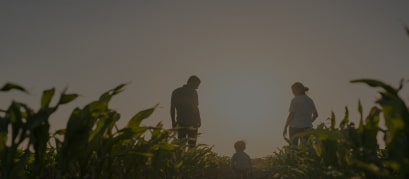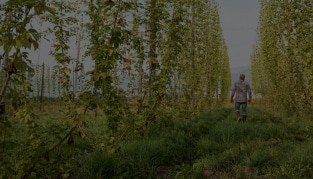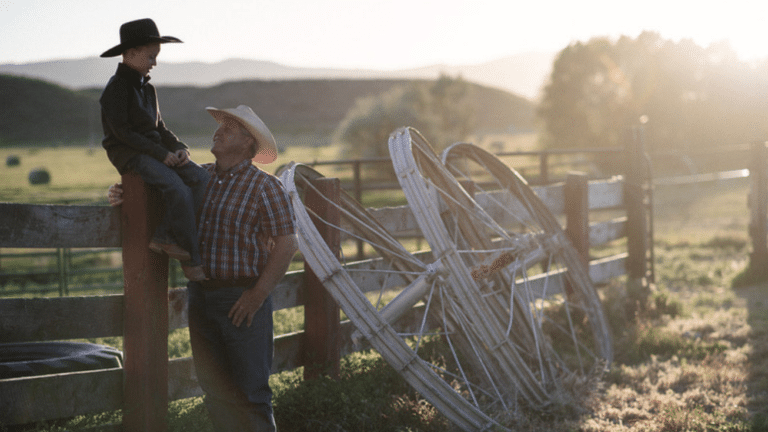Cattle Industry: History of the Cow Dog
Dogs, such as the Florida cow dog, are an integral part of many cattle operations; see how the relationship came to be.
Step foot on most ranches, and chances are, you’ll find a dog. While you might think the canine is simply a family pet, it’s likely a bona fide working dog that does double duty as a pet and a first-rate cowhand. Dogs are well-known as man’s best friend, but they also work very well as one of man’s top helpers on the ranch. It’s a common saying that “a well-trained cow dog is worth the work of several cowhands.” Explore the history of working dogs, like the Florida cow dog, and the special place cattle dogs have on the ranch, below.
History of Cattle Dogs
It’s believed that humans started domesticating dogs 15,000 years ago. Those dogs likely had jobs very similar to today’s working dogs: to help with hunting, herd livestock, keep predators away, guard the home, and be a companion. Through selective breeding, the first domesticated dogs eventually became all of the breeds of dogs we know and love today. According to an article on AmericanCowboy.com, the path of domestication that leads to the majority of cow dogs started in Northern Europe. The histories of favorite cattle dogs include:
Border Collie
This modern-day cow dog is a descendant of a hunting dog that a “Northumberland man in Scotland” bred in the late 1800s to be the ultimate herding dog. When American sheep ranchers began importing sheep from the British Isles, they brought these extremely intelligent dogs along. Often Scottish sheepmen also accompanied sheep herds to the U.S. bringing their Border Collies, which they knew to be excellent herders. They proved very helpful during our western expansion, skillfully performing shepherding duties to help manage cattle and sheep herds.
Australian Shepard
The predecessors to Australian Shepherds were brought to North America by Basques hailing from both their native territory, the mountainous border between France and Spain, and those who traveled to Australia first and then to the U.S. (hence the dog’s name). The Australian Shepherd is an American-born breed and was originally bred to herd livestock for ranchers and farmers in the West. Aussies are known to be versatile, hardworking, and intelligent and can be found lending a hand on farms and ranches even today.
Australian Cattle Dog
These cow dogs are favorites for working with cows due to their slightly more aggressive nature. Originating in Scotland, their ancestors were brought to Australia, where it is said they were cross-bred with dingoes to increase breed stamina. They are also called Australian Cattle Dogs, Queensland Heelers, Blue Heelers, or just Heelers. The breed was instrumental in helping ranchers across Australia expand the beef industry.
Florida Cow Dog
Also called a Cracker Cur or a Florida Cur, the Florida cow dog is a canine shrouded in mystery. Spanish explorer De Soto surely brought cattle dogs with him when he brought cattle to the Sunshine State in the 1500s, but there is no authentic, recognized Florida cow dog breed. Many ranches can trace their dog’s lines back for generations, but there is little fussing over “pedigree” You can hear many different claims: hounds, bulldogs, bully breeds, walkers, and Catahoula dogs are all part of someone’s idea of a Florida cow dog. Regardless of their origin, Florida cow dogs usually work cattle in hot weather over tough scrub land; many are used for hunting wild boar as well, and they have a reputation for toughness and grit.
We at AgAmerica Lending understand the special place cattle dogs hold on the ranch because we understand the ins and outs of ag life like no other lender. Let us show you how our custom ag loans can help your ag operation, much like your cow dog does! Contact us today to speak with a knowledgeable team member.






